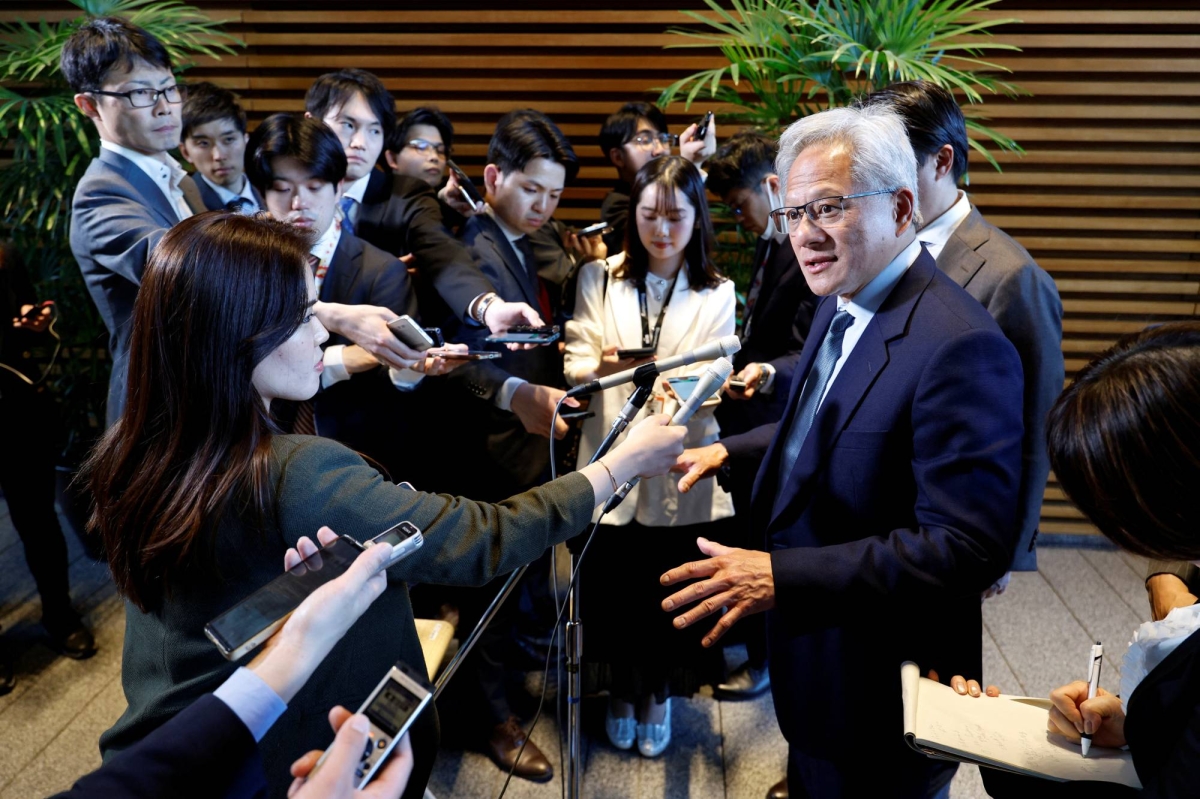Nvidia CEO Seeks Japan's Help to Boost AI Power
Jensen Huang, CEO of Nvidia, the leading graphics processing unit (GPU) maker and a dominant force in the burgeoning artificial intelligence (AI) industry, recently embarked on a diplomatic mission to Japan. His goal? To secure Japan's collaboration in bolstering the nation's, and by extension, the global AI infrastructure. This move highlights the critical role Japan could play in the future of AI development and underscores Nvidia's strategic ambition to expand its influence in this rapidly evolving landscape.
Why Japan? A Strategic Partnership for AI Advancement
Japan possesses several key attributes that make it an attractive partner for Nvidia in its pursuit of AI dominance. These include:
-
Advanced Semiconductor Manufacturing: Japan boasts a rich history and significant expertise in semiconductor manufacturing, a crucial component in producing the high-performance GPUs that power AI systems. Collaboration with Japanese companies could potentially streamline the production process and ensure a stable supply chain for Nvidia's cutting-edge hardware.
-
Technological Innovation: Japan has a long-standing tradition of technological innovation, particularly in fields related to AI, such as robotics and computer vision. Partnerships with Japanese research institutions and tech companies could foster breakthroughs in AI algorithms and applications.
-
Government Support for AI Development: The Japanese government has actively promoted the development of AI through various initiatives and funding programs. This supportive environment creates a fertile ground for collaboration and investment, making Japan an appealing location for Nvidia to expand its operations.
-
Strong Focus on Data Privacy and Security: Japan's stringent data privacy regulations offer a stable and secure environment for AI development, addressing concerns around data security and ethical considerations. This is a crucial factor for Nvidia as AI development increasingly relies on massive datasets.
Nvidia's Strategy: Beyond Hardware
While Nvidia is renowned for its hardware, Huang's visit signals a broader strategic vision that extends beyond simply selling GPUs. He's actively seeking to cultivate a strong ecosystem around Nvidia's technology, leveraging Japan's expertise to:
-
Develop Next-Generation AI Chips: Collaboration could accelerate the development of more efficient and powerful GPUs specifically designed for the demands of advanced AI applications.
-
Foster AI Talent: Partnering with Japanese universities and research institutions could contribute to the training and development of a skilled workforce crucial for the future of AI.
-
Expand Market Reach: Japan's strategic location and strong economic ties with other Asian countries provide Nvidia with an opportunity to expand its market reach and increase its global influence in the AI sector.
The Implications for the Global AI Landscape
Nvidia's pursuit of a strategic partnership with Japan is not an isolated incident. It reflects a broader trend of global competition and collaboration in the AI race. The outcome of this partnership could have significant implications for:
-
Global AI Innovation: A stronger Japan-Nvidia collaboration could lead to faster advancements in AI technology, benefiting the global community.
-
Geopolitical Dynamics: The partnership could shift the global balance of power in the AI industry, influencing technological leadership and economic competitiveness among nations.
-
Ethical Considerations: The emphasis on data privacy and security in Japan serves as a model for ethical AI development, highlighting the importance of responsible AI practices.
The Future of AI: A Collaborative Effort
Jensen Huang's trip to Japan underscores the importance of international cooperation in accelerating AI development. The success of Nvidia's strategy will depend on the ability to foster mutually beneficial partnerships, leveraging Japan's technological prowess and regulatory framework to drive innovation and responsibly shape the future of artificial intelligence. This initiative points towards a future where global collaboration is not just desirable, but essential for unlocking the full potential of AI.
